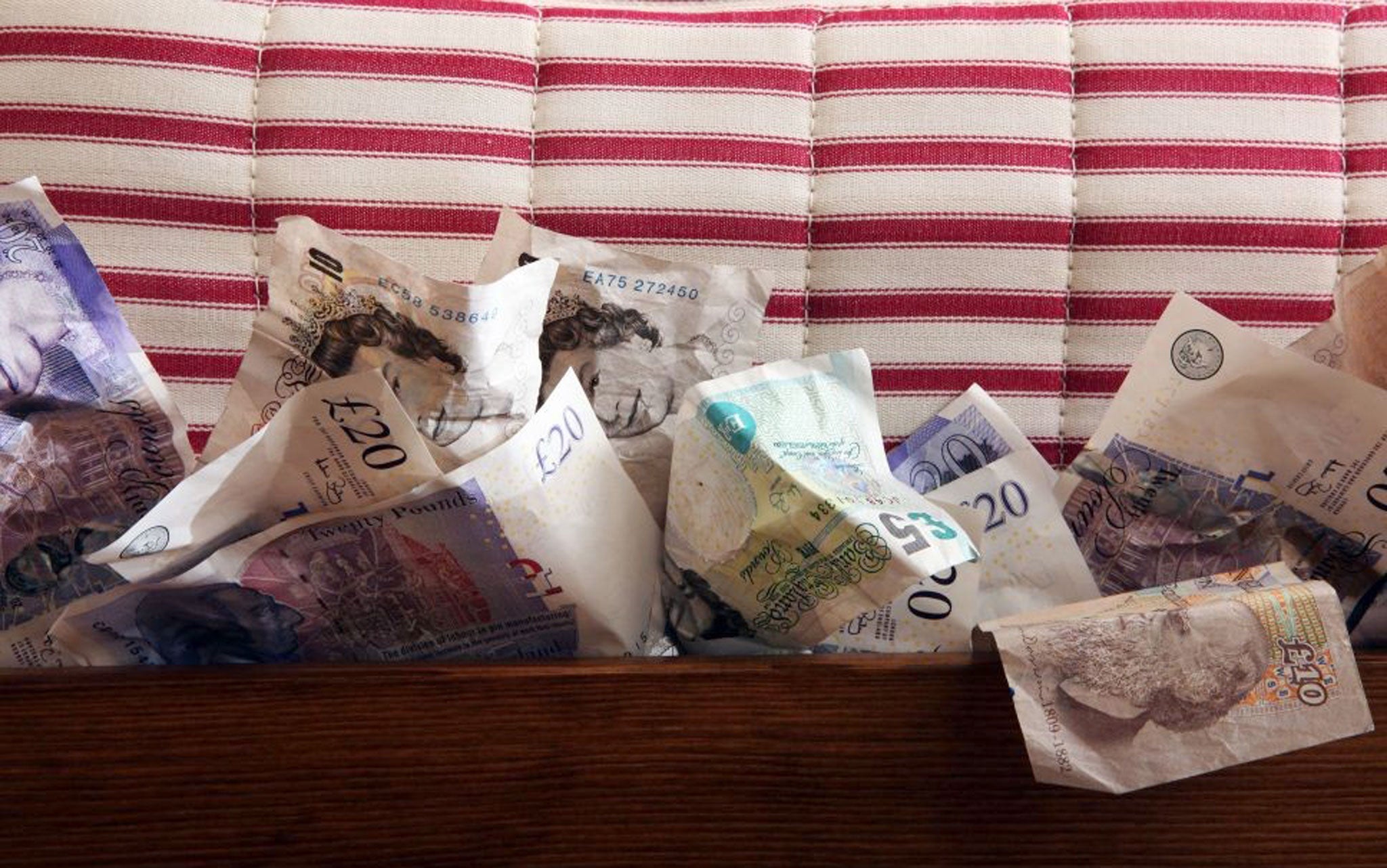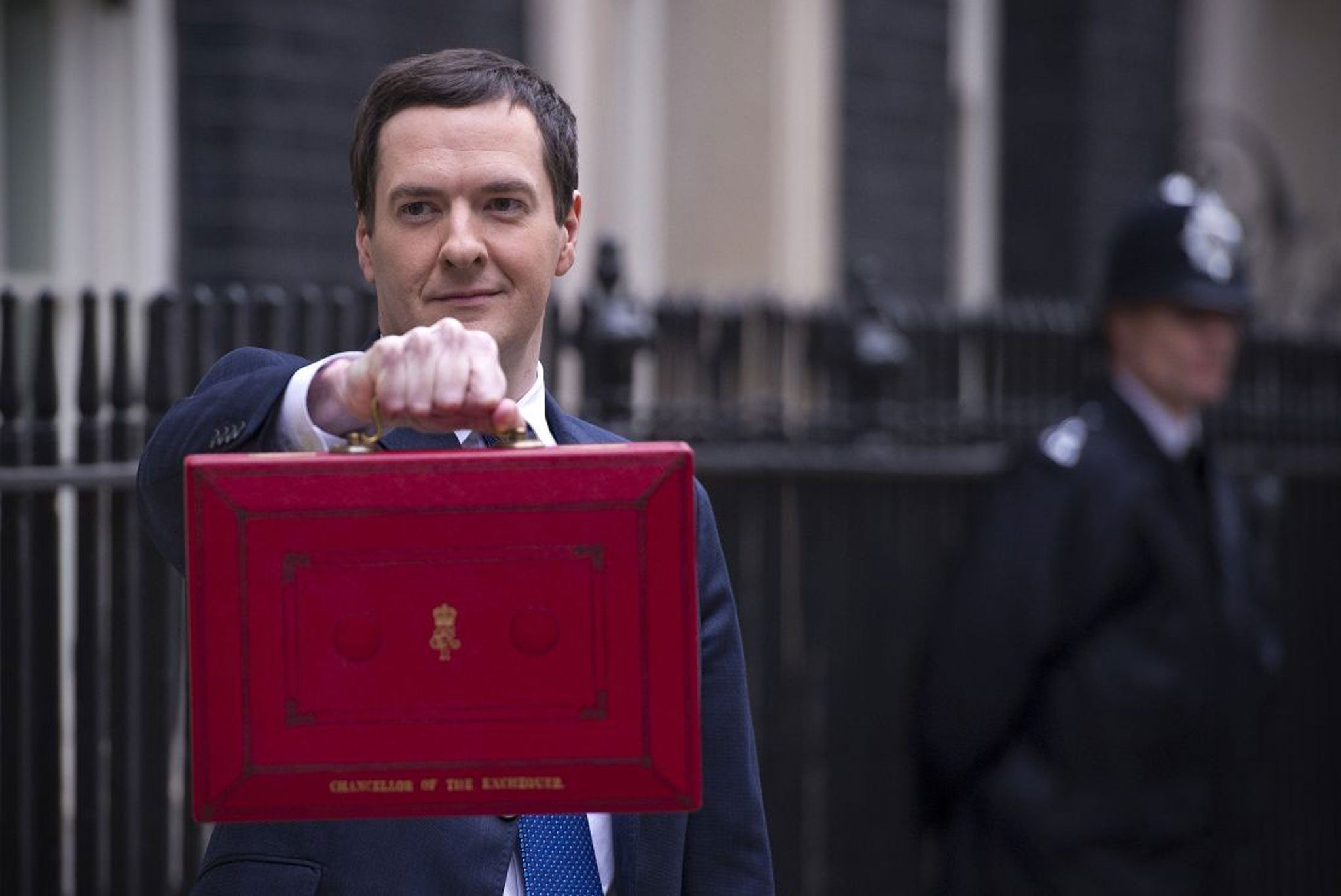Check your Isa - it may be a flop too as banks slash interest rates
For all the hype over the new accounts, Simon Read finds banks aren't rising but lowering themselves to the occasion

Your support helps us to tell the story
From reproductive rights to climate change to Big Tech, The Independent is on the ground when the story is developing. Whether it's investigating the financials of Elon Musk's pro-Trump PAC or producing our latest documentary, 'The A Word', which shines a light on the American women fighting for reproductive rights, we know how important it is to parse out the facts from the messaging.
At such a critical moment in US history, we need reporters on the ground. Your donation allows us to keep sending journalists to speak to both sides of the story.
The Independent is trusted by Americans across the entire political spectrum. And unlike many other quality news outlets, we choose not to lock Americans out of our reporting and analysis with paywalls. We believe quality journalism should be available to everyone, paid for by those who can afford it.
Your support makes all the difference.This was the week that savers and investors had been waiting for: the launch at last of the new Isas, which promise much higher allowances – a tripling of the limit for cash Isa savers – and greater flexibility.
But for one Independent reader at least, the development has been much less positive, despite a massive Treasury campaign to promote the so-called super Isas, launched by Chancellor George Osborne in the March Budget. Oh, and not forgetting the rash of new launches that banks and building societies rushed out after the new rules came into force on Tuesday.
James Simpson was contacted by his bank this week with some exciting news. An email headed "Your Instant Access ISA is changing" arrived from the taxpayer-owned Royal bank of Scotland. It went on to say, somewhat breathlessly: "Making the most of your tax-free allowance in a cash Isa is a great way to save and you'll soon have the opportunity to save even more tax-free when the allowance increases to £15,000."
"Great!" "Opportunity!" These marketing people certainly know their way around the positive dictionary, don't they? But they also know how to bury bad news. For that was what the real message of the email contained.
James's instant access Isa is indeed changing, but for the worse. From the start of next month, the rate paid out is being slashed by a quarter
The account is already paying a paltry 1 per cent and will fall to what may well be a new low of 0.75 per cent.
James was not terribly pleased by the "change". He said: "I am seriously thinking of keeping my money in a box under my bed."
Who can blame him? What's the point in taking advantage of these accounts if the rates they pay are far from attractive?
Mr Osborne claimed this week: "The introduction of the new Isas [Nisas] is a big boost for millions of people, giving them greater economic security by putting aside money in savings."
Putting aside the fact that there are millions of people who can't actually afford to save, and so can't take advantage of the tax-free opportunity that the Chancellor has created, there's little real encouragement for those who do have a nest-egg to stick it in an Isa. Rates on standard accounts have been shrinking for some time. The average cash Isa interest rate is now just 1.58 per cent, according to number-crunchers at Moneyfacts, when a year ago it was 1.74 per cent.
Even the Government's own official figures show that banks have slashed interest rates paid since the new super Isas were announced by Mr Osborne.
A report published on the Bank of England's website showed that the average rate on cash Isas fell from 2.07 per cent in March to 1.84 per cent by May.
And if James Simpson's experience is widespread, it looks like things are only going to get worse.
What's the justification for cutting the rates paid? Here's RBS's interesting explanation: "Savings interest rates in the UK marketplace have continued to go down. Because of this, we reluctantly need to make changes."
Maybe we should translate that into English. What do you think RBS means when it refers to the "UK marketplace"? It means the banks and building societies that offer Isas. Banks such as RBS.
If saving rates in the UK marketplace have gone down, that's because banks and building societies have put them down. Banks such as RBS.
In other words, RBS is justifying its decision to slash rates by blaming actions that it – and its rivals – have already taken in reducing rates.
Once you know that, you understand that the bank's use of the word "reluctantly" is not strictly true. Because it is a key part of the marketplace, it can choose where rates go. It has chosen to penalise its customers by putting them down at the moment.
Of course all the other banks and building societies are equally guilty in creating the worst rates for savers in living memory – as much as they try and point the finger at others for the woeful returns.

However, that doesn't mean you should ignore Isas. Because of their tax-free status, they still offer better returns than standard accounts, which are equally woeful at the moment.
The near trebling of the cash Isa limit from £5,760 in 2013-14 to £15,000 in the current 2014-15 tax year is significant.
Coupled with the increased flexibility offered by the new Isas, investors should be channelling as much of their nest-egg as they can into the tax-free wrappers.
Bear in mind that if you're a basic-rate taxpayer, the return you can get in an Isa is worth 20 per cent more than it would be outside because of the tax effect. If you're a higher-rate taxpayer, it is worth 40 per cent more.
There's also the attraction of that new flexibility, with the new Isas allowing you to switch all your holdings between shares and funds and savings accounts.
Up until now you've only be able to move money held in an Isa from savings accounts to equity-based investments. You're now allowed to move back the other way, if you wish. And then back again, and so on.
That's ideal for those who want to be able to retreat from the stock market at certain times, but plan to go back.
In fact, figures published by the Investment Management Association this week suggested that there's a wealth of cash waiting to be invested in funds through new Isas.
They showed that sales of Isas through fund companies and platforms were worth £98m in May, less than half what they were 12 months earlier, when investors put in £204m.
The figures echo similar ones published by the British Bankers' Association last week. They showed a massive drop in the amount that people have been stashing in cash Isas in the past three months: savings stood at £5.3bn, down by more than a third on the same period in 2013.
With all that pent-up demand, money will certainly flow into Isas in the next few weeks, but banks and building societies really need to decide – even if it's "reluctantly" – to move the market in a more positive direction by offering decent rates.
"The changes introduced in the Budget gave savers a glimmer of hope and incentivised people to put more money aside each month," said Neil Lovatt of Scottish Friendly.
"However, the cash Isa market has not risen to the opportunity, instead choosing to offer low interest rates or actually reduce rates in fear of overly high inflows."
That's not fair to savers. If you already have a cash Isa, the chances of its rate being cut seems quite high despite the Nisa hype this week.
For this reason, check that the return you're being paid hasn't been reduced to insulting levels. If it has, don't take your money out to put in a box under the bed, as James Simpson plans, but find an account that does pay a little more – and then wait for better deals to emerge.
Meanwhile, the annual limits for kids' tax-free accounts – child trust funds and Junior Isas – have been increased to £4,000 from their previous levels of £2,400.
And Isas are expected to allow peer-to-peer loans to be held within them in due course, with the Government consulting on how to implement that right now.
New Isa deals: Where to stash cash
There has been a constant stream of new cash Isa launches this week. First out of the blocks on Tuesday – when the new Isa rules came into effect – were Clydesdale and Yorkshire banks with a 2.45 per cent fixed-rate bond, the drawback being that you have to lock your money away for 40 months.
The only real light at the end of the tunnel for savers is the promise of rate increases, which could come before Christmas if you believe the intimations made by the Bank of England Governor Mark Carney a few weeks ago.
He has also predicted a return to an environment where 3 per cent is the norm for the Bank base rate, compared with the 0.5 per cent record-low level at which it's stood for the past five years.
But for that reason you may decide against a long-term fixed-rate deal where the offer could start to look a little less attractive if interest rates generally start to climb.
Halifax and Skipton made small increases on their Isa rates this week, with a range of other fixed deals being offered. The AA launched a two-year fix at 2 per cent, for example, while Saga's one- year fixed deal pays 1.55 per cent. Others should follow, so it may be wise to wait.
Join our commenting forum
Join thought-provoking conversations, follow other Independent readers and see their replies
Comments